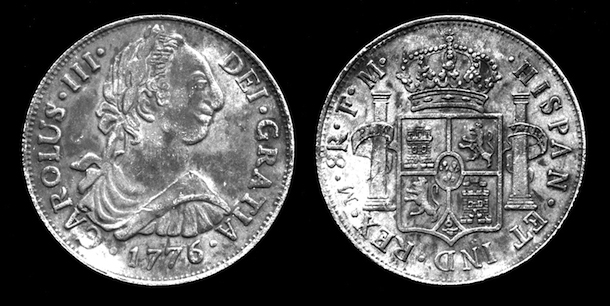
In the Tech at Night series, I’m constantly pointing out that Bitcoin’s greatest problem is that it’s a magnet for the scum of the earth. It turns out that’s not the problem in itself, it’s merely a symptom. The problem with Bitcoin is much simpler than that.
Bitcoin creates slavery, because Bitcoin is anarchy.
No really, it is a tool to create an anarchic economy. It’s not like cash or gold. Cash and gold are anonymous and free, but are also tangible things. They exist as physical tokens in the real world. This is important because if they are stolen they can be found, and given back to their rightful owners. Bitcoins, if stolen, are locked away in a way that cash never is.
The way Bitcoin wealth is stored, is in a large database (14 GB as of this writing) which is distributed to people around the world. Without going into too much technical detail, every Bitcoin “wallet” with money in it stored in that database has a ‘public key’ and a number of Bitcoins attached to it. In order to withdraw money from that wallet, you have to use the ‘private key’ also associated with that account.
The security of a Bitcoin wallet is based on the intractability of the mathematical problem of breaking that key pair, discovering the private key, and emptying the wallet. The actual math is far more complicated, but imagine by way of analogy that the public key of a wallet is “4” and the private key is “0.25.” Only instead of division being the way to get one key from the other, it’s actually a much tougher math problem, that computers can’t solve in any reasonable amount of time.
Considering how every Bitcoin wallet in existence is out in the open, on the publicly-accessible Blockchain, this math has to be resistant to attacks, even against wealthy individuals or governments. Because what a government can do now, any ordinary citizen may be able to do in 5 or 10 years.
Therefore even if a Bitcoin thief is caught, whether the government can recover the stolen Bitcoins is up in the air. We may have the ‘public key’ of his wallet, but we still need the ‘private key.’ And the problem of securing private keys is a very well-studied problem in cryptography (the field that Bitcoin’s math comes from). Even if we get access to all of the thief’s computers and drives, It could be that the thief’s private key is itself encrypted with a secure passphrase, so that even if the government gets ahold of all of the thief’s computers, the money will remain safely in the hands of the thief.
Without the means of enforcing property rights, that basic ability we give the state to coerce a wrongdoer to return what he has taken, a Bitcoin society is not a free society. It’s anarchy that naturally devolves into the rule of the weak by the strong.
Bitcoin promises liberty but only results in tyranny. Bitcoin is not just independent of government, it’s resistant to any kind of law and order. I don’t think that problem can be solved, so I don’t think Bitcoin has a future in an ordered, free society.